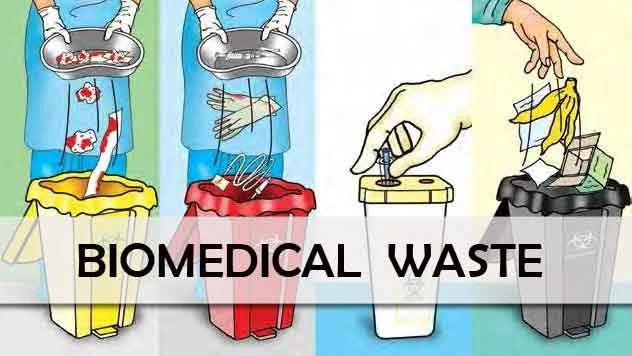Biomedical Waste Management and Its Importance

Biomedical waste management is a crucial aspect of healthcare and public health, involving the proper handling, treatment, and disposal of waste generated during medical activities. Biomedical waste, also known as medical or healthcare waste, includes materials that may pose a threat to human health and the environment due to their infectious, toxic, or radioactive nature.
Why is Biomedical Waste Management required?
Inadequate waste management in healthcare facilities creates direct health threats to the public, healthcare workers, and the environment. To limit the risk of contamination, biological waste must be supervised outside the hospital by waste handlers, scavengers, and people who live near hospitals.
Management is also required because of the risk of air, water, and land contamination, as well as incorrect incineration emissions and ash. It is crucial to remove unused drugs that can be repackaged and traded.
Biomedical Waste Storage
Medical waste must be stored in a designated area at healthcare facilities until it is collected for treatment and disposal. A storage facility should be properly created, isolated from the public, and equipped with warning signals and signs.
Before transporting, store it in a dry and secure spot. Water, wind, rodents, insects, and animals must be kept away. Hazardous biomedical waste should be stored for no more than three months.
Importance of biomedical waste management:
Infection Control: Biomedical waste often contains pathogens such as bacteria, viruses, and other microorganisms that can cause diseases. Effective management helps prevent the spread of infections among healthcare workers, patients, and the public.
Public Health and Environmental Protection: Inadequate disposal of biomedical waste can lead to contamination of air, water, and soil. This poses serious health risks to communities, as well as harm to ecosystems and wildlife. Proper management ensures the protection of public health and the environment.
Worker Safety: Healthcare workers who handle biomedical waste are at risk of injuries and infections if the waste is not managed properly. Implementing safe disposal practices and providing appropriate training and protective equipment helps ensure the safety of healthcare personnel.
Legal Compliance: Many countries have strict regulations and guidelines regarding the management of biomedical waste. Compliance with these regulations is essential to avoid legal consequences and to maintain the integrity of healthcare facilities.
Resource Conservation: Biomedical waste often contains materials that can be recycled or reused. Implementing effective waste segregation and recycling programs can help conserve resources and reduce the overall environmental impact.
Community Awareness: Proper biomedical waste management involves educating healthcare workers, patients, and the public about the risks associated with improper waste disposal. Creating awareness can contribute to responsible waste disposal practices and community involvement.
Prevention of Accidents and Injuries: Biomedical waste may include sharps, such as needles and scalpels, which can cause injuries if not handled properly. Proper waste management minimizes the risk of accidents and injuries associated with the handling and disposal of these materials.
Ethical Considerations: Responsible waste management is aligned with ethical considerations in healthcare. It reflects a commitment to the well-being of patients, healthcare workers, and the community at large.
Conclusion
Biomedical waste management is not just a responsibility but a critical necessity for the healthcare industry and society. Improper disposal of biomedical waste can have severe consequences for public health and the environment. From infectious diseases to pollution, the hazards associated with inadequate waste management are numerous.
Fortunately, there are laws and regulations in place to ensure the proper handling and disposal of biomedical waste. Healthcare facilities must adhere to these guidelines to protect both their staff and the community from potential risks.
Implementing best practices for biomedical waste management is crucial. This includes segregating different types of waste, using appropriate containers, labeling them correctly, and ensuring they are stored safely before transportation for treatment or disposal.